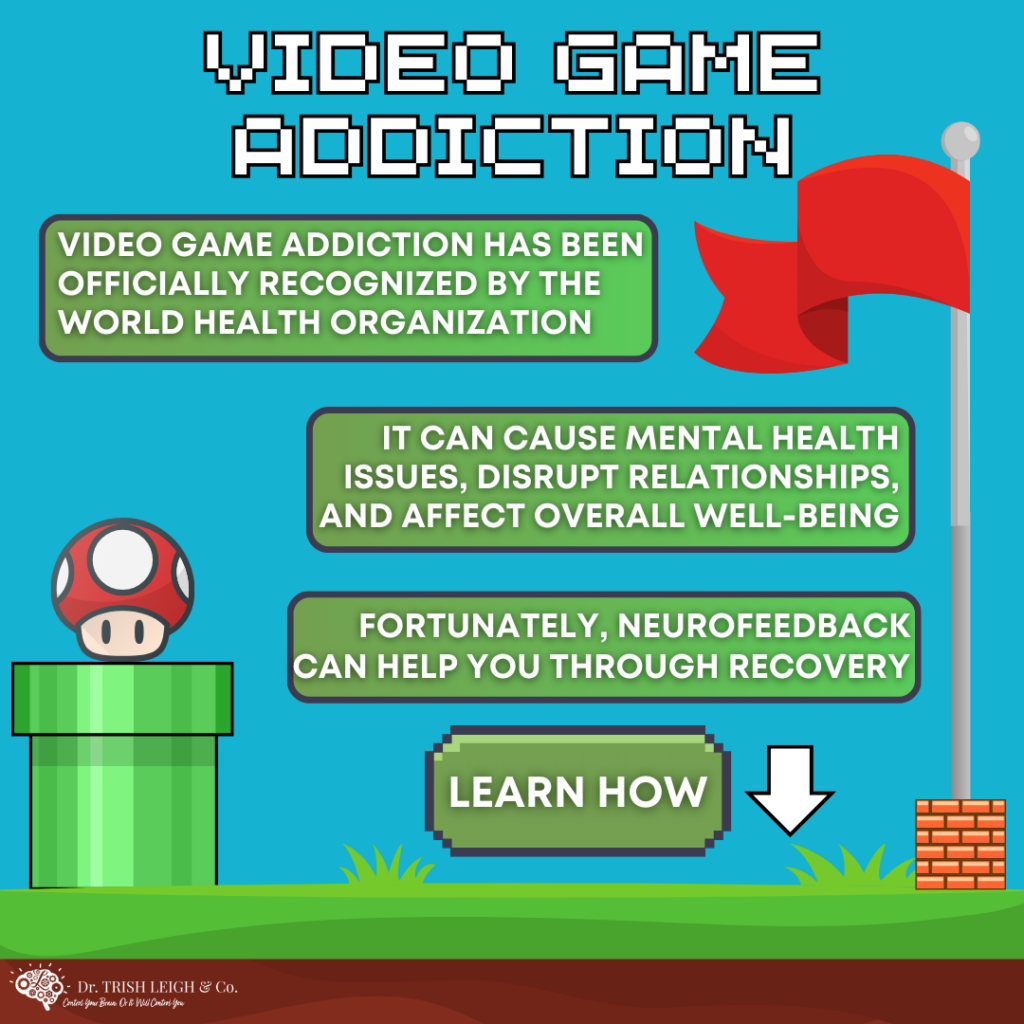Overcoming Video Game Addiction With Neurofeedback Therapy
In the digital age, video games have become an integral part of our entertainment landscape. While many enjoy gaming responsibly, others find themselves trapped in the grips of video game addiction. This addiction can have severe consequences, affecting mental health, relationships, and overall well-being. However, emerging therapeutic approaches, such as neurofeedback therapy, offer promising avenues for recovery.
Understanding Video Game Addiction:
Video game addiction, officially recognized as Gaming Disorder by the World Health Organization, is characterized by impaired control over gaming, prioritizing gaming over other activities, and continued gaming despite negative consequences. It often leads to physical, emotional, and social problems, resembling other addictive disorders.
The Role of Neurofeedback Therapy:
Neurofeedback is a form of biofeedback that focuses on the brain’s electrical activity, measured through EEG (electroencephalography). This therapy aims to regulate brain function by providing real-time feedback, making individuals to learn to self-regulate and optimize their brainwave patterns.

Recovery Through Neurofeedback:
1. Assessment and Individualized Treatment Plans:
Neurofeedback therapy begins with a comprehensive assessment of the individual’s brain activity. Professionals use this data to create personalized treatment plans tailored to the specific needs and challenges of the person seeking help for video game addiction.
2. Brainwave Training:
During neurofeedback sessions, individuals play video games or engage in activities while connected to EEG sensors. The feedback reflects their brainwave patterns. Positive reinforcement occurs when the brain produces healthier patterns, encouraging the brain to adapt and optimize its functioning.
3. Reward-Based Learning:
Neurofeedback operates on the principles of operant conditioning, where the brain learns through positive reinforcement. When desired brainwave patterns are achieved, individuals receive rewards, reinforcing the development of healthier neural pathways.
4. Enhancing Self-Regulation:
Over time, neurofeedback helps individuals gain greater awareness and control over their brain functions. This heightened self-regulation extends beyond the therapy sessions, getting individuals to manage impulses and make healthier choices, reducing the compulsion to engage in excessive gaming.
5. Addressing Underlying Issues:
Neurofeedback doesn’t merely treat symptoms; it addresses the root causes of addiction. Therapists work with clients to identify and address underlying psychological, emotional, or environmental factors adding to their gaming addiction.
Conclusion:
Video game addiction can be damaging, affecting various aspects of one’s life. Neurofeedback therapy represents a promising avenue for recovery by harnessing the brain’s remarkable ability to adapt and change. As we continue to explore innovative approaches to mental health, neurofeedback stands out as a beacon of hope for those seeking to break free from video game addiction. With professional guidance and a commitment to change, individuals can embark on a journey toward a healthier, more balanced life.


